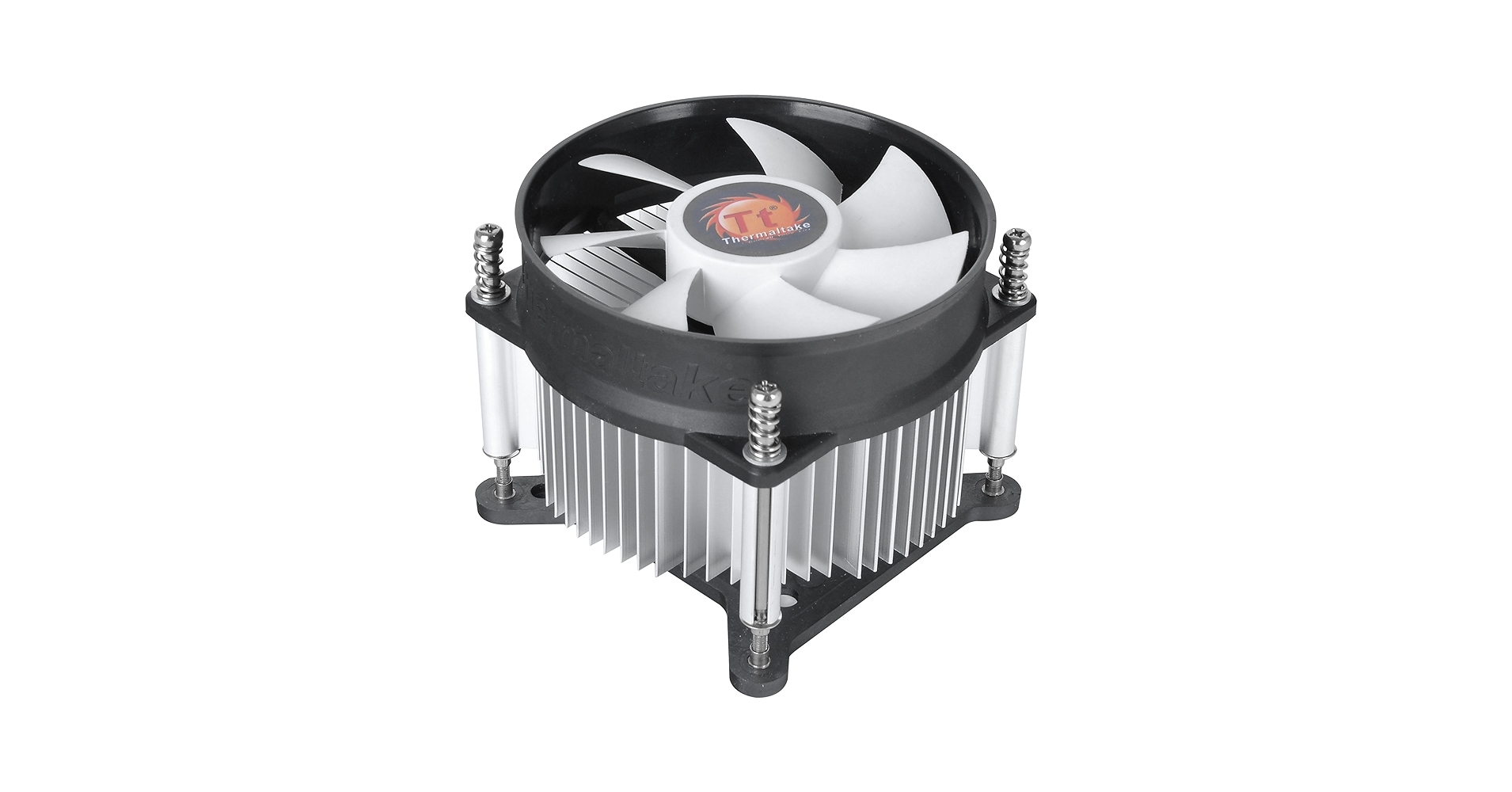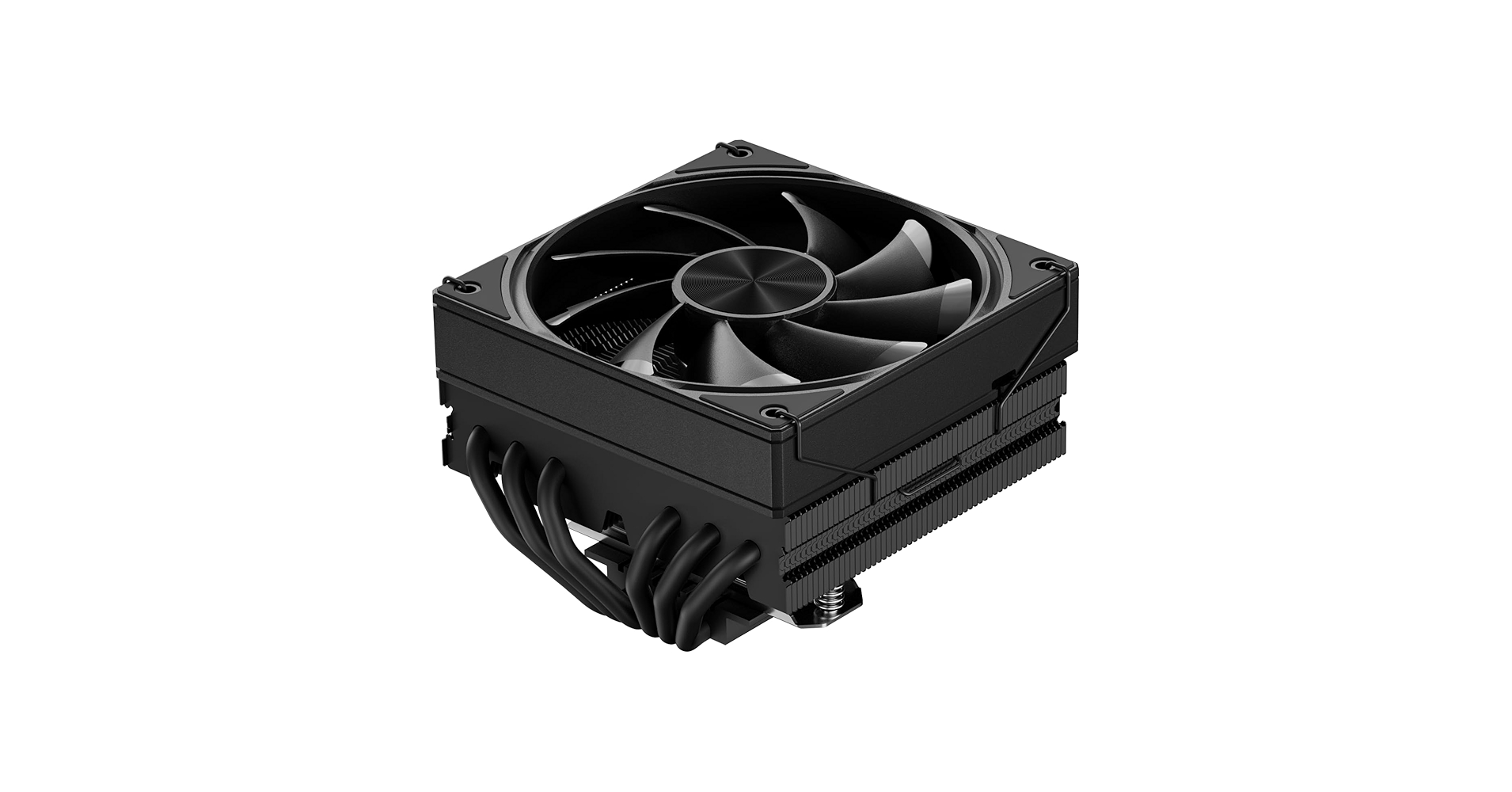-
×InformationNeed Windows 11 help?Check documents on compatibility, FAQs, upgrade information and available fixes.
Windows 11 Support Center. -
-
×InformationNeed Windows 11 help?Check documents on compatibility, FAQs, upgrade information and available fixes.
Windows 11 Support Center. -
- HP Community
- Desktops
- Business PCs, Workstations and Point of Sale Systems
- My Z2 G9 SFF with 13700 have a 65 watt cooler......

Create an account on the HP Community to personalize your profile and ask a question
05-23-2025 12:13 PM
Hi.
I'm new here, so please bear with me, but....
How on earth can it be that HP sells EXPENSIVE workstations, in this case mine, where the CPU can output a maximum of 220 watts, then they put a 65 watt cooler on it?
I´m using some space programs from steam (universe sandbox and more) and the CPU are from 85-97 degrees.
If im testing with their own program (HP PC hardware diagnostics windows) it goes to 100 degrees and clock down faster than you can say, what the ... is going on
05-23-2025 02:13 PM - edited 05-23-2025 02:23 PM
Welcome to our HP Community forum!
Yes, the Intel Core i7-13700 (16-Cores, 24-Threads, 4.10 GHz up to 5.20 GHz, Processor Base Power 65-watt, Maximum Turbo Power 219-watt) is indeed a powerful hybrid CPU with 16 cores (8P+8E) and a maximum turbo power of 219-watt.
That’s a serious amount of potential heat -especially when running AVX-heavy or multithreaded workloads like physics simulations (e.g., Universe Sandbox).
Now combine that with the Z2 G9 SFF chassis, which is:
A compact, space-saving design (SFF = Small Form Factor)
Limited to low-profile cooling solutions
Designed more for CAD, office, or light workstation tasks than heavy-duty simulation
HP includes a low-profile blower-style cooler (p/n: N04516-001 "SPS-Cooler CPU 65W Premium Z2 G9 SFF" rated at 65–watt, not anywhere near enough to handle the i7-13700 at medium let alone full tilt.
My Point of View:
1. HP Designed This for Quiet Corporate Use — Not Science Simulations:
The Z2 G9 SFF is primarily targeted at corporate/enterprise environments: think AutoCAD, Excel, email, and light rendering -not thermal-pounding workloads like Universe Sandbox or long-duration simulations. HP assumed this use case and thus tuned thermals conservatively.
Look, it's not a bad machine — it’s just not optimized for what you want it to do.
2. The Thermals Are Working "As Designed":
The CPU running into 100°C and throttling immediately under stress testing isn't a bug. It’s the thermal governor doing its job:
Preventing damage
Managing fan acoustics
Staying within the design envelope of the SFF chassis
But that doesn’t help a power user like you who’s seeing your system choke during real-world use.
What's the Real Issue?
Mismatch between hardware capability and thermal envelope:
CPU can pull up to 219-watt
Chassis/cooling is designed for ~65 perhaps up to 80-watt sustained use
Realistic User Options:
1. Undervolt / Power Limit:
Use ThrottleStop or QuickCPU* (my favorite) to:
Set PL1/PL2 to ~95-watt / 125-watt max
Disable turbo boost entirely (as a last resort)
This keeps temps in check and avoids abrupt throttling.
2. Improve Internal Airflow (if possible):
Sometimes the SFF chassis has an optional side intake fan bracket. I am not familiar with your particular SFF, but if it’s available, improving overall airflow can help -though limited due to space.
3. Move to a Z2 G9 Tower (if upgradable):
If you're not married to the SFF form factor, the Z2 G9 Tower has much better airflow and can support tower coolers. It's the same platform but allows real cooling for your i7-13700 to stretch its spindly legs.
4. Re-purpose the SFF:
If you can’t upgrade cooling, consider downgrading the CPU to a 65-watt TDP chip such as an i7-13700T or i5-13500T. Granted, you’re gonna lose some performance, but the machine will run cooler and quieter -and still do pretty well in many pro apps.
Final Thought:
You are 110% right to be frustrated. HP is putting an F1 turbo race engine in a compact commuter tricycle and hoping the user never hits the highway. That said, HP didn’t do anything wrong per spec -it’s just that SFF machines are thermally constrained by nature, and users such as yourself are pushing them beyond what they were built/designed for.
If you want workstation-grade sustained performance, a move to the Z2 Tower or Z4/Z6 workstation is the only path forward sans thermal compromise.
* I successfully utilized the freeware utility program QuickCPU for something similar, by throttling/limiting the CPU power input to 150-watt in my upgrade project: https://h30434.www3.hp.com/t5/Desktop-Hardware-and-Upgrade-Questions/Upgrading-an-HP-Pavilion-TP01-3....
Kind Regards,
NonSequitur777

05-23-2025 03:35 PM
Waow, thank you for that great answer and good elaboration.
I must say though, they should have put a 125 watt cooler in this case. They do exist.
And, this is still a very expensive WORKSTATION they brand very well.
A small part here below.
((The Z2 SFF delivers high performance for your intensive workflow—from 3D design to real time raytracing—now and in the future.
Design, simulate and—for the first time—real time ray trace on a Z2 SFF. Now fitting full height, full length pro graphics and Intel®Core™ processors, including K-Series, this PC delivers tower-sized performance that defies space constraints.
Configurable for today. Expandable for tomorrow.
Accelerate your current workflow with a multitude of options across processor, graphics, memory, storage, and I/O ports. And with plenty of room to upgrade and expand, this PC is ready to grow with you as your workflow evolves.
Industry leading security. Reliability you can trust.
Get peace of mind with a PC that's built to endure. The Z2 SFF undergoes 360K hours of rigorous testing, military-standard testing and is certified for pro apps))
(((Undergoes 360K hours of rigorous testing)) I guess they forgot to test the cooler 😉
I'm just very disappointed and had to say it, sorry.
And again, thank you so much
05-23-2025 04:38 PM
Trust me, I wholeheartedly agree with your point.
I suppose HP engineers transcribe "acceleration" quite differently from what you and I think it should mean...
Kind Regards,
NonSequitur777

07-20-2025 11:11 AM - edited 07-20-2025 11:13 AM
Fantastic, without being an expert I installed the Quick CPU you recommended and set power settings to "Power saver" mode (from the "HP optimized recommended"). No more hysteric fan and temp is cool below 50 °C (It used to hit 100 °C before for no apparent reason every now and then when I was doing some silly editing in my IDE). PS I am not a gamer. i7 13700K 32 GB T1000 8G. Cheers
07-20-2025 12:28 PM
Outstanding -I am glad that your issue for all intents and purposes has been resolved!
Kind Regards,
NonSequitur777

07-20-2025 08:52 PM
I'm not going to get into the CPU cooler wattage/ substandard cooling debate issue here as i don't own this system
what i will comment on is the max wattage number you mention (219 watts) that number is a PEAK wattage that is only seen for a fractional amount of time before the CPU's onboard power system throttle's the CPU down
the steady state wattage number when at 100% CPU load is what you need to be concerned with and that number is nowhere near 219 watts
HP did not pull the CPU cooler capacity from a hat full of numbers or take the cheapest heatsink (although price was/is considered) remember HP has to warranty this system for operation in the stated temp ranges they publish in the "quickspecs" on this model system
is the stock cooler a tradeoff with price vs cooling capacity? I absolutely think that's the case here and with all computer systems made. Could you do better? possibly but there are many things to consider before replacing a stock cooler in a SFF case to ensure the new cooler actually performs better
what i would do if the existing cooler is all aluminum is look to see if a aluminum & Copper or all copper intel heat sink is available for you system
compare Intel R1 laminar 65 watt cooler cooler for Raptor Lake-S cpu's socket LGA-1700
https://www.intel.com/content/www/us/en/support/articles/000089189/processors.html
with this 95 watt one
or this one (may not fit uses 120mm fan)
https://www.amazon.com/upHere-H85-CPU-Air-Cooler/dp/B0D9Y2QNFJ?th=1
07-20-2025 10:31 PM - edited 07-20-2025 11:08 PM
No need in this particular instance to go for a non-HP heatsink.
HP has a 125-watt heatsink/cooling fan combo for the OP's HP Z2 SFF G9 Workstation with p/n: N04517-001 "SPS-Cooler CPU 125W Z2 G9 SFF".
I looked it up, and HP did install the 65-watt CPU cooler paired with an i7-13700, but that would be (unlikely as that may be 😉) an oversight from my perspective.
Kind Regards,
NonSequitur777

07-20-2025 10:55 PM
what the higher wattage coolers do is that they allow the peak 219 watt thermal load to be absorbed into a more massive heatsink without it being overwhelmed during the peak thermal output of the cpu this allows the cpu to run at a faster speed longer before needing to throttle down and as a bonus you usually will also get lower fan noise most cpu's only run at peak thermal load for short bursts due to how most code is executed, and yes Intel does spec the 13700 cpu as a 65watt "BASE" power draw part which is somewhat misleading in my opinion
in this person's poste using the performance cooler may make the undervolting of the cpu unnecessary however if using a OS that lacks a software method to undervolt the cpu then the heatsink method is the only other thing to try
07-20-2025 11:06 PM
Yes, for HP to pair a processor albeit with a 65-watt "Processor Base Power" TDP but with a whopping 219-watt "Maximum Turbo Power" TDP with a mere 65-watt CPU cooler is not something I would sign off on.
Kind Regards,
NonSequitur777



